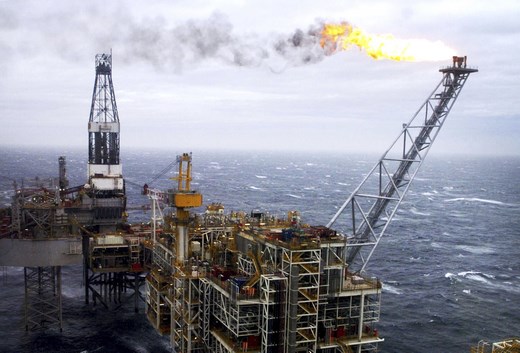
With businesses in lockdown and families stuck at home, the Covid-19 pandemic has hit demand for oil and gas. The year so far has seen seismic shifts in consumption and product, and it's no surprise that energy funds have suffered as a result.
We’ve looked at funds in the Morningstar Energy Category, which are available for sale in the UK and have at least £100 million in assets under management. While they are all in negative territory, the difference between the best and worst performers energy fund is stark.
While the best performing fund in the group is down 27.5% year to date, this is still some 23.7 percentage points ahead of the worst performer. Investors in the Schroder Global Energy fund has had to stomach losses of 51.2% this year.
Over five years, the disparity is even greater, highlighting that the downward trend is not entirely attributable to Covid-19 pandemic; it shows the decline of fossil fuel as governments across the world turn to sustainable sources of energy.
| Fund | Morningstar Rating | YTD Return (%) | 2019 Return (%) | Annualised 5-Yr (%) | 5-Yr Tot Ret (%) |
| NinetyOne Global Energy | 3 | -27.5 | 9.1 | -4.6 | -20.9 |
| Franklin Natural Resrces | 2 | -36.1 | 5.2 | -7.1 | -30.2 |
| BGF World Energy | 3 | -42.7 | 7.2 | -8.8 | -37.4 |
| Guinness Global Energy | 2 | -49.1 | 5.3 | -10.8 | -43.0 |
| Schroder Global Energy | 1 | -51.2 | -5.5 | -16.2 | -60.0 |
Source: Morningstar Direct, October 21 2020.
At the top of the table is the three-star rated Ninety One Global Energy fund, which is down 27.5% this year. While the numbers are hardly impressive, the fund has beaten its benchmark by 15.5 percentage points and is also ahead of its average Morningstar category.
To qualify for the Morningstar Energy Category funds must have at least 60% of their portfolio invested in the sector, though many have considerably more. The Ninety One fund has a lower exposure to energy (64.7% of its assets) than its peers (an average of 88.7%), which has helped it to outperform. Instead, the portfolio is skewed towards sectors which have not been hit so hard by the fallout from the Covid-19 pandemic, such as industrials (14.2%) and technology (10.1%).
Investments in renewable energy companies have also been an important contributor to returns. Xinyi Solar has been a strong performer, and the fund's investment team say it "has benefited from rising prices for solar glass due to very strong near-term demand from China". Avoiding US oil majors and shale companies has also helped stave off stock market volatility, they add: "These shares have been negatively impacted by poor sentiment and the continued challenges seen for traditional oil businesses, with oil demand likely to remain weak for some time.”
Among the fund's weakest holdings are five-star rated oil and gas giant BP (BP.) and Texas-based hydrocarbon exploration Conoco Phillips (COP), whose shares have tumbled by 29.7% and 25.3% respectively year to date. BP slumped after it cut its dividend this year and announced 7,500 global job cuts.
Energy Funds have Suffered
In second position is the two-star Franklin Natural Resources fund, which is down 36.1% this year – 7.2 percentage points ahead of its benchmark, the MSCI World Energy. A 59.4% exposure to energy and the flexibility to diversify into the likes of precious metals, copper, chemicals and renewable energy companies have helped it to the top part of the table. “While this didn't protect the fund from Covid-related declines, it helped cushion the downside,” says Fred Fromm, manager of the fund.
Among its detractors are four-star rated Canadian oil company Suncor Energy (SU) and American energy firm Chevron (CHV), whose shares are down 34.5% and 23.7% respectively. Chevron, specifically, made a loss of around $8.3 billion (£6.3 billion) in the second quarter of the year - the company's worst performance in at least three decades.
Meanwhile, gold equities were by far the biggest positive contributors to performance with an average return of nearly 40% year to date. Alongside these, Fromm says small positions in industrial software, industrial gas and construction materials have been positive. “We continue to like these holdings as they should be beneficiaries of long-term secular trends, he says. “Industrial gas companies such as Air Products & Chemicals (0HBH), for example, are involved in green hydrogen fuel projects."
At the bottom of the table is one-star rated Schroder Global Energy. With 100% of its portfolio in energy, it has been heavily exposed to the struggles of the sector. The fund has plunged 51.2% year to date, putting it some 15.7 percentage points behind its Morningstar category average. Mark Lacey, head of global resource equities ast Schroders, says: "The fund provides investors with conventional energy exposure, investing in the lowest cost, strong free cash generating companies with very strong balance sheets."




























